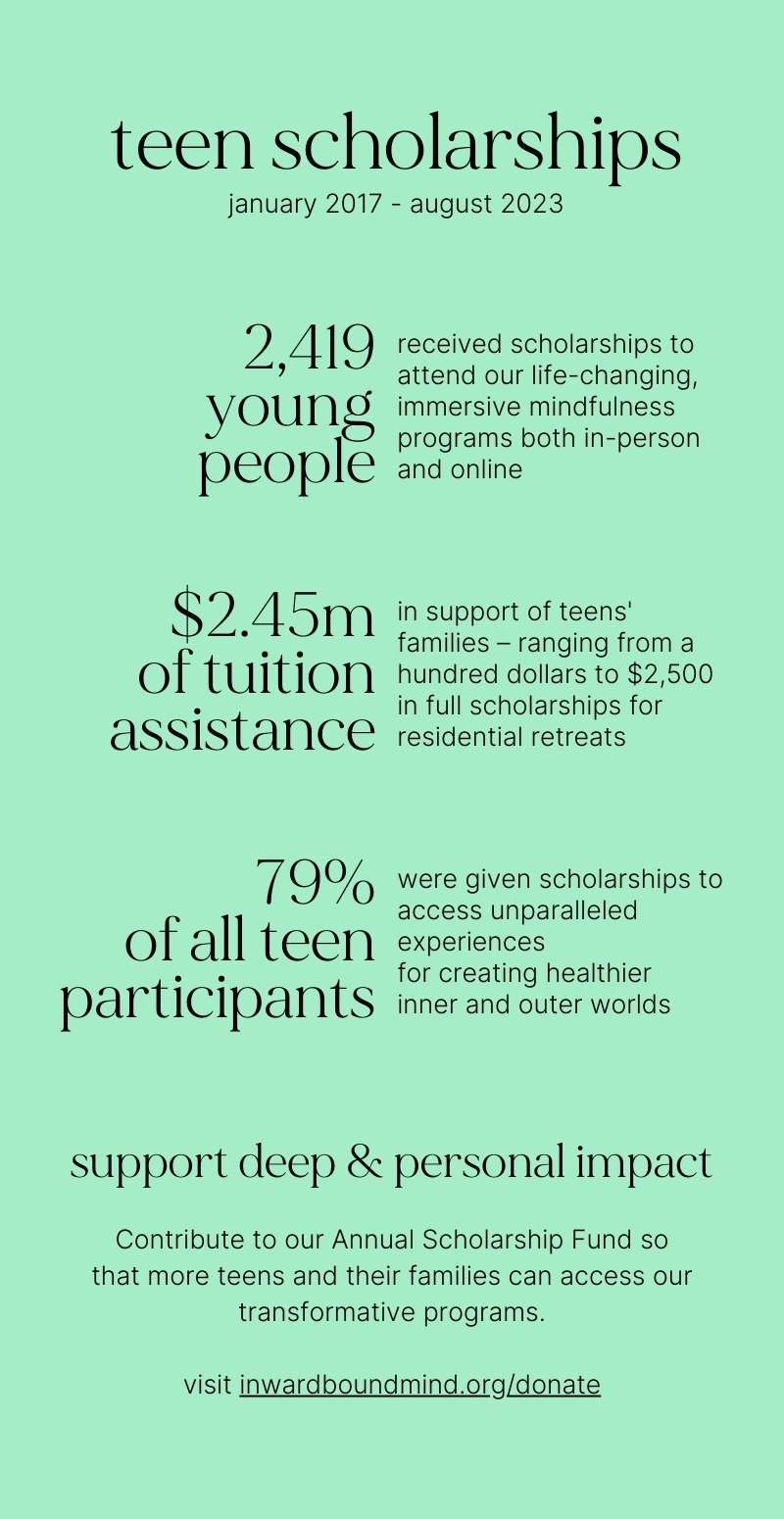equitable tuition model
our vision of a gift economy
tuition & scholarship structure
Our ultimate vision is to support our programs, teachers, and staff through a gift economy, where payments and offerings are not seen as transactional or commodified, but rather money and resources flow from where they exist to where they are needed in a cycle of generosity.
We try our best to ensure no teens are barred from the opportunity to attend our programs due to the systemic injustices spanning generations that have left many families and communities economically vulnerable.
We have determined our current tuition structure to be as progressive and equitable as possible while being as grounded in our current economic framework as necessary for financial sustainability. One of the ways we provide scholarships is through our sliding scale tuition payment structure. The policy and payment structure is set at a 1% contribution of household income per teen per retreat up to incomes of $149,949. There is a minimum payment of $250; incomes $149,950+ pay the full $2,500 retreat cost.
We acknowledge that our policy is still regressive in that it uses a fixed percentage to calculate tuition. This structure disadvantages lower-income earners whose basic expenses are a much higher proportion of their overall income than what is needed for basic expenses for high-income earners. Our structure also favors very high-income earners, as we cap our tuition at $2,500, essentially treating someone who makes $149,950+ the same as someone who makes $750,000 a year.
We hold the intention to move towards a more progressive tuition policy, where resources flow from those families and communities with more resources towards those communities and teens with the least, with full willingness in both giving and receiving. Our programs are only possible because of the contributions of each member of our community – every teen, mentor, teacher, parent, office staff, and the wider world of mindfulness – so our vision includes the needs and resources of each member, as well as the whole Inward Bound Mindfulness community.
Accomplishing this vision would represent a significant shift in our cultural collective consciousness. In dominant American culture, we do not orient towards other peoples’ needs but instead, orient towards concepts of “deserve” and “fairness” or “equality” within the context of vastly inequitable economic systems. We also orient towards notions of value (price) being measured by the market rather than by sustainability needs.
We plan to continue experimenting with different ways of engaging with money that continues moving us from where we are now to where we want to be. We want to continue learning and improving our system until teens, their families, and communities fully understand and engage with it in sustainable ways for all. Towards that end, we welcome your feedback on this evolving process!
back to deia overview